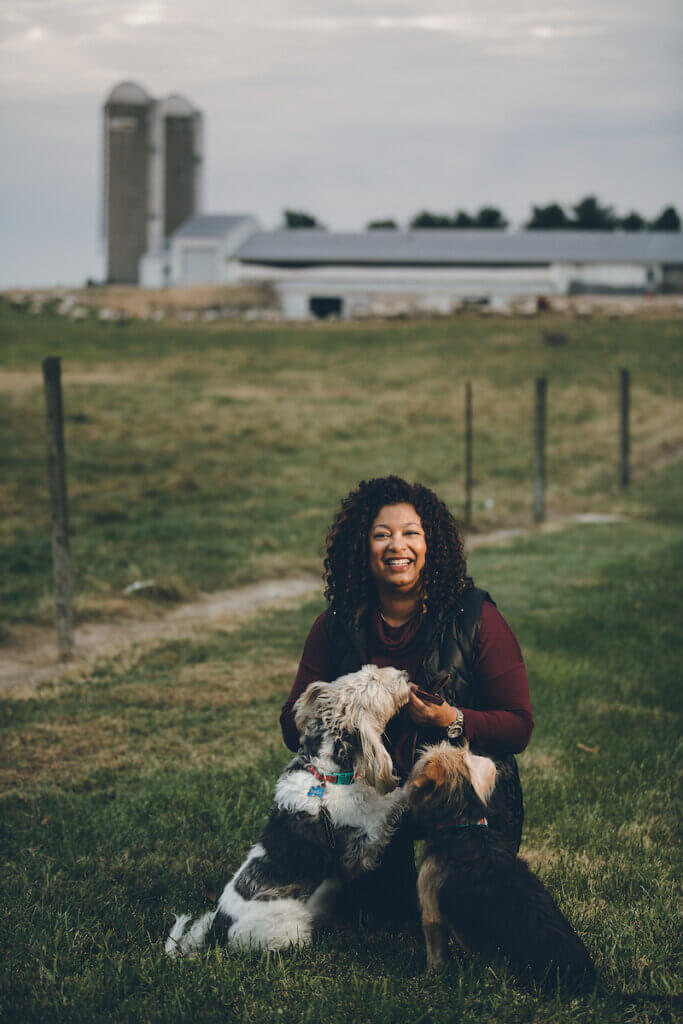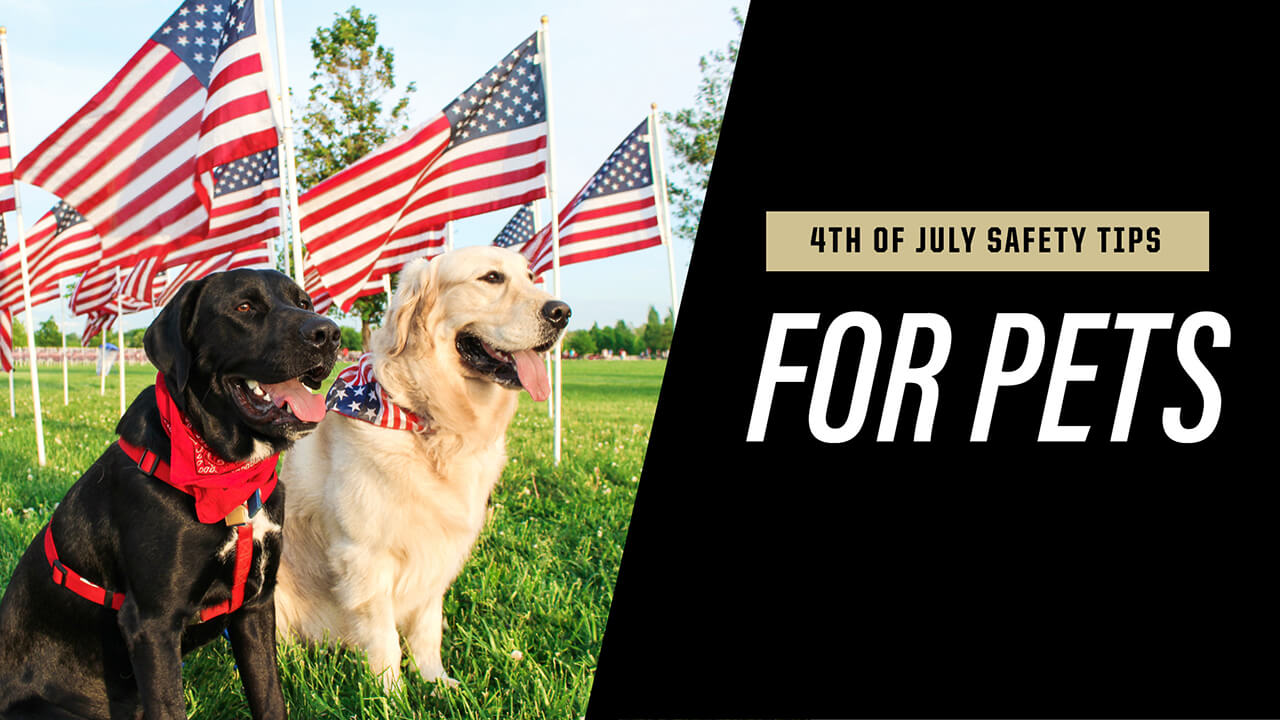This article was written by Purdue University Professor of Animal Behavior and Well-being Candace Croney, PhD, to offer a new perspective to help pet owners protect their pets as Independence Day approaches by thinking about 4th of July activities as likely experienced from a pet’s point of view. Dr. Croney is director of the Center for Animal Welfare Science, leads the Croney Research Group, and holds a joint appointment in the College of Veterinary Medicine’s Department of Comparative Pathobiology and the College of Agriculture’s Department of Animal Sciences.

Despite the excellent tips for pet safety and welfare on the 4th of July that experts provide each year, many pet families still run into trouble and lose their pets. What are we missing and how can we even better protect our animal companions?
One mistake may be overestimating our pets’ comfort during the 4th of July. Though many of us enjoy entertaining guests, summer weather, travel, and the lights and sounds of fireworks displays, all of these can be stressors for our pets. Even pets who are very social, including dogs who seem ‘unbothered’ when accompanying their families to gatherings that include fireworks displays, are likely experiencing some degree of stress. Considering how much more sensitive their hearing is than that of humans, what may look like ‘enjoyment’ from them is likely more a response to the positive, reassuring experience of being with family members, rather than shared delight at what may seem to them to be bombs bursting in air. Unless they are regularly exposed to fireworks (which is not advisable for several reasons), it is very difficult for pets to become accustomed to them. The unpredictability and inconsistencies of when fireworks are set off, for how long, as well as the variation in how much noise and light they create makes it almost impossible for pets to adapt and cope well, especially if they have little control by way of opportunities to retreat from them. This creates a perfect storm of conditions for eliciting stress and fear in pets that can worsen over time. Overstimulation along with a particularly triggering sound and light combination can cause a pet to panic and bolt. A loose or dropped leash or even slightly open door at that point may quickly result in a lost pet and a ruined 4th of July. Outdoor pets are unlikely to fare any better. They are just as susceptible to being startled as indoor-living pets and may try to escape, which is why bringing pets indoors and containing them safely and effectively during the holiday remains a top recommendation.
Of all the proactive tips and tricks offered to help secure our pets and reduce the fear and stress they may experience during the 4th of July, the most important is preparing well ahead of time. And one area people may overlook is planning for the worst by ensuring that a lost pet has the best chance of being reunited quickly with their family. Having a pet microchipped is one of the best ways to identify them, but this benefit is negated if the chip cannot be read or your contact details are outdated. Do be sure your pet’s microchip can be read by your veterinarian and is updated with your current information. Even better, also having your pet wear a collar with tags that permit easy reading of their name, and a current phone number, can help someone who finds them quickly get in contact with you. This can be especially helpful if your pet is skittish and cannot be caught. Attaching an AirTag (or its equivalent) to your pet’s collar may help you reduce your search area and locate them more efficiently. These can be used for both cats and dogs. Having up to date pictures of your pet that can be easily circulated along with ways to contact you can speed up their return. Last, because time is of the essence when a pet is lost, it is helpful to know in advance where a found pet is likely to be taken to in your own and neighboring communities, and where lost and found pets are posted about in your area, so that in a worst-case scenario, you do not lose time searching for these resources rather than for your pet.
Remember, more pets are lost during the 4th of July holiday than at any other time of the year! So, here’s an easy way to remember the following tips to help your pet COPE on Independence Day.
C – Contain your pet in a safe, familiar, comfortable area indoors
Add a bed, toys, chews, and treats for more comfort
Sound machines, TV, or a radio may help block out some noise
O – Organize your plan
Consult your veterinarian BEFORE the holiday
Have prescribed medication, supplements, calming wraps, pheromone diffusers or collars handy
Decide whether staying with your pet is best for them
Ensure your pet’s tags, photos, and microchip information are up to date
P – Practice your plan
Know how and when to give medications
Familiarize your pet with their safe space
Assess their comfort and safety in their designated enclosure
E – Exercise, physical and mental, through play, puzzles, long-lasting treats/chews, and increased activity, may help tire or distract your pet enough to reduce stress

